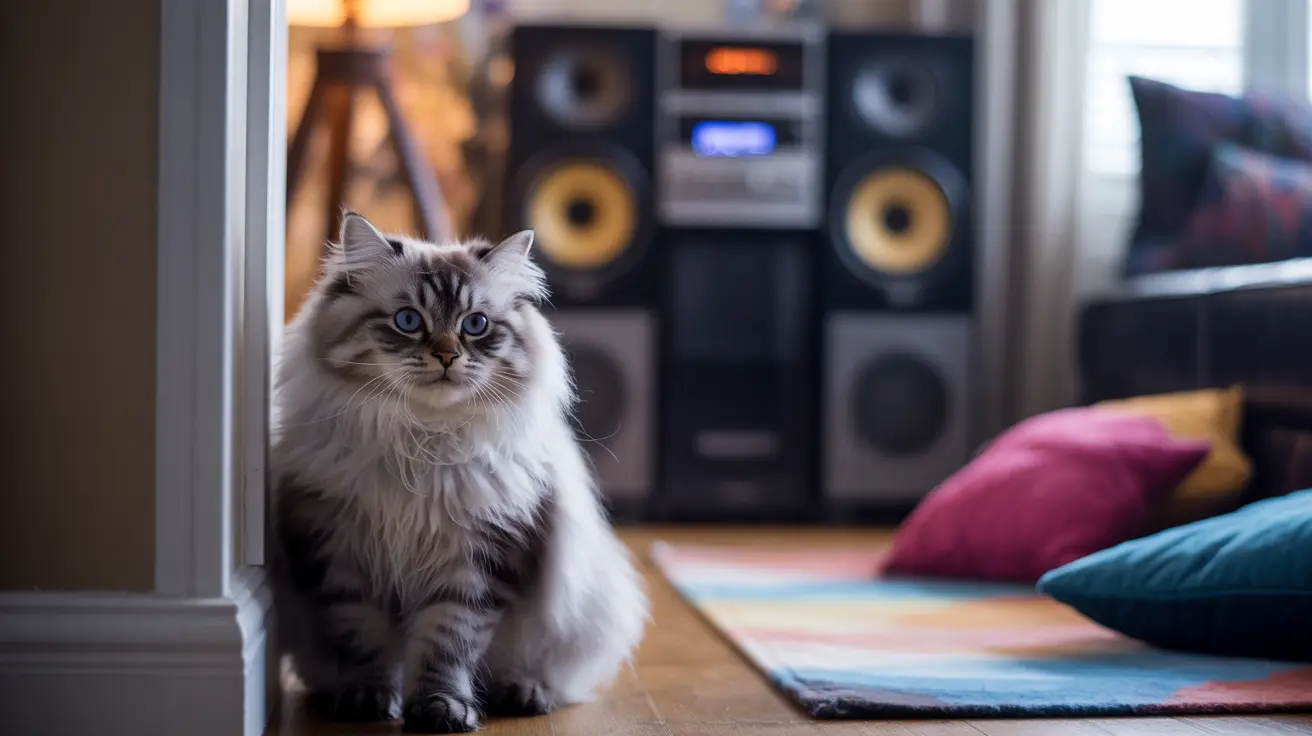Understanding Cats' Extraordinary Hearing Abilities
Cats possess one of the most sophisticated hearing systems in the animal kingdom. Their hearing range extends from 45 Hz to 64 kHz, dramatically exceeding human hearing capabilities (20 Hz to 20 kHz). This enhanced sensitivity means that sounds we consider moderate might be overwhelming for our feline companions.
Their ears are equipped with 32 muscles that allow them to rotate their outer ears (pinnae) up to 180 degrees, helping them pinpoint sound sources with remarkable precision. This evolutionary adaptation, while beneficial for hunting and survival, also makes them particularly vulnerable to loud noises.
The Impact of Loud Music on Cats
Loud music can indeed hurt cats' ears and cause both immediate and long-term damage. Exposure to sounds above 95 decibels can be harmful, and prolonged exposure to noise levels above 120 decibels can cause permanent hearing damage. For reference, a typical rock concert reaches about 120 decibels – a level that can be painful and potentially damaging for cats.
Unlike humans, cats cannot "tune out" excessive noise or protect themselves by covering their ears. Their constant state of auditory awareness means they're always processing environmental sounds, making them particularly susceptible to noise-related stress and damage.
Signs Your Cat is Affected by Loud Music
Cats typically display several behavioral indicators when they're distressed by loud music:
- Flattened or pulled-back ears
- Hiding or seeking shelter
- Excessive grooming
- Dilated pupils
- Aggressive behavior
- Trembling or shaking
- Increased vocalization
- Attempting to escape the room or area
Protecting Your Cat's Sensitive Hearing
To safeguard your cat's auditory health, consider implementing these protective measures:
- Keep music volume at moderate levels
- Provide quiet spaces where your cat can retreat
- Monitor your cat's behavior during loud activities
- Use sound-dampening materials in your home
- Consider using pet-specific calming music when appropriate
Frequently Asked Questions
Does loud music cause hearing damage or stress in cats?
Yes, loud music can cause both physical hearing damage and significant stress in cats. Their sensitive hearing makes them particularly vulnerable to loud sounds, which can lead to permanent hearing loss and anxiety-related behaviors.
How loud is too loud for a cat's sensitive ears?
Sounds above 95 decibels can be harmful to cats, while exposure to noise levels above 120 decibels can cause immediate damage. A good rule of thumb is to keep household sounds below conversation level (around 65 decibels).
Why are cats more sensitive to high-pitched sounds and sudden noises than humans?
Cats have evolved to hear a much wider range of frequencies than humans, particularly in the higher ranges. Their ears contain more sound-sensitive hair cells and their auditory system is designed for detecting prey and avoiding predators, making them naturally more sensitive to sudden and high-pitched noises.
How can I protect my cat's hearing when playing music at home?
Keep music at a moderate volume, provide quiet spaces for your cat to retreat, and observe their behavior for signs of distress. Consider using a decibel meter app to monitor sound levels and ensure they stay within safe ranges.
What signs indicate my cat is stressed or in pain from loud music?
Look for signs such as flattened ears, hiding behavior, excessive grooming, dilated pupils, aggression, trembling, or attempts to escape the area. These behaviors indicate your cat is experiencing discomfort from the noise level.
Conclusion
Loud music does hurt cats' ears and can significantly impact their quality of life. As responsible pet owners, it's crucial to be mindful of our cats' sensitive hearing and take steps to protect them from excessive noise exposure. By understanding their unique auditory capabilities and responding appropriately to signs of distress, we can create a more comfortable and secure environment for our feline companions.






